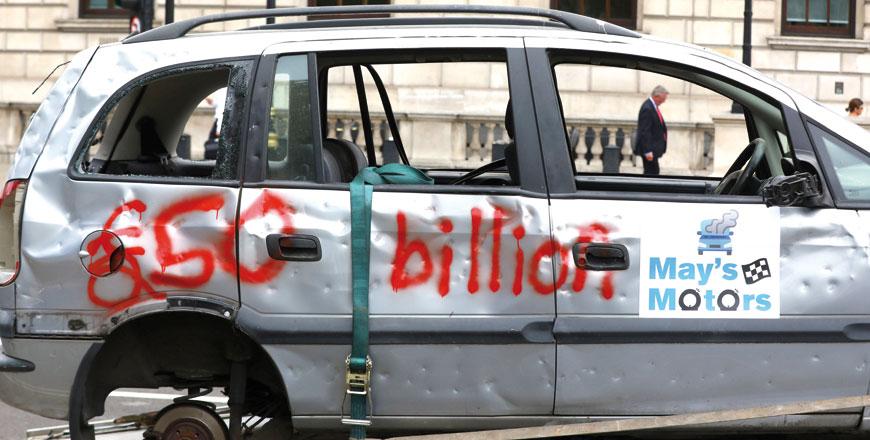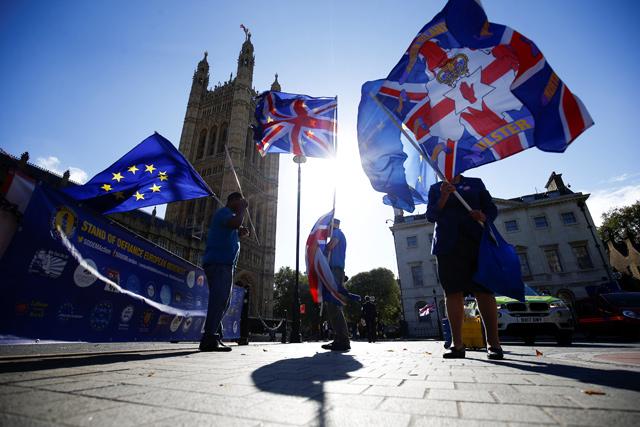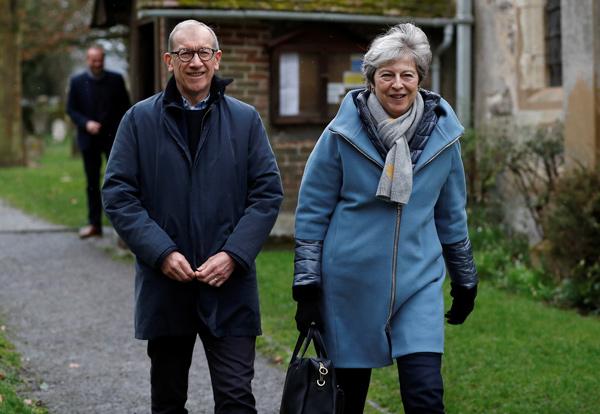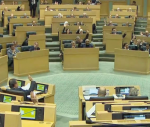You are here
UK PM May stands firm on her Brexit plan, but scepticism persists
By Thomson Reuters Foundation - Sep 02,2018 - Last updated at Sep 02,2018

Britain's former Brexit secretary David Davis talking on the Marr Show on BBC television in London, Britain, on Sunday (Reuters photo)
LONDON — Prime Minister Theresa May said she would not allow compromises to her Brexit strategy that went against the national interest, seeking to allay fears among some in her Conservative Party that she will cave in to Brussels' demands in negotiations.
But her words drew scepticism, including from the former Brexit negotiator David Davis who said the pledge was little reassurance and that he would vote against parliament giving May's exit plan its required approval.
With under two months before Britain and the European Union want to agree a deal to end over 40 years of union, May is struggling to sell what she calls her business-friendly Brexit to her own party and across a divided country.
After an initially sceptical reaction, the EU is formulating its response to what has become known as the Chequers plan, which is designed to protect cross-border trade.
Boxed in between those at home who would balk at further concession and an EU negotiator demanding more concession, difficult talks lie ahead, followed by a vote in parliament on whatever deal is reached.
"I will not be pushed into accepting compromises on the Chequers proposals that are not in our national interest," May wrote in the Sunday Telegraph newspaper. Parliament returns from its summer break on Tuesday.
"The coming months will be critical in shaping the future of our country and I am clear about my mission."
Both Britain and the EU have stepped up contingency planning in case the two sides are unable reach a deal in time, setting financial markets on edge and weakening sterling at the prospect of economic disruption.
May also said she would not hold a second referendum on Britain's EU membership, reiterating a long-held position in an attempt to counter increasingly vocal campaigning for another public vote on the terms of the divorce.
National interest
May's plan would keep Britain in a free-trade zone with the EU for manufactured and agricultural goods. But some Brexit supporters have said that would mean parts of the British economy would still be subject to rules set in Brussels.
Davis, who resigned in protest over the Chequers plan after two years as May's chief negotiator, said the proposal was "almost worse than being in" the EU, and that May could use 'national interest' as a caveat to justify further concessions.
"You're not going to turn around said to parliament 'Oh, I agreed this, but that wasn't in the national interest' are you?" he told the BBC.
Trade Minister Liam Fox, who also campaigned for Brexit but still supports May, said it was now up to the EU to respond to the British proposal, when asked whether he thought further compromises would be necessary.
"We have already set out what we think is a reasonable position for the United Kingdom to have in our future trading relationship with Europe," Fox told the BBC.
Any agreement Britain is able to strike with EU will need approval from the British parliament. According to a report in the Sunday Times newspaper, leading Brexiteer lawmakers in May's party are ready to publish their own plan for Brexit ahead of the party's annual conference which begins at the end of September.
Meanwhile, lawmaker Nick Boles, who voted to remain in the EU in 2016, has launched a campaign to stop the Chequers plan and seek even closer ties.
May is unlikely to be able to rely on the support in parliament of the opposition Labour Party, which is also split over the best approach to Brexit.
In her article, May reiterated that Britain would be ready to leave the EU without a deal if the two sides cannot agree on the divorce terms.
Related Articles
LONDON — Prime Minister Theresa May published her blueprint for relations with the European Union after Brexit on Thursday, hoping to keep c
BRUSSELS/LONDON — British Brexit Minister Dominic Raab will hold talks with the EU's chief negotiator on Sunday, the first in a flurry of fo
LONDON — Brexit-supporting lawmakers who voted down British Prime Minister Theresa May's European Union withdrawal deal in January have outl


















